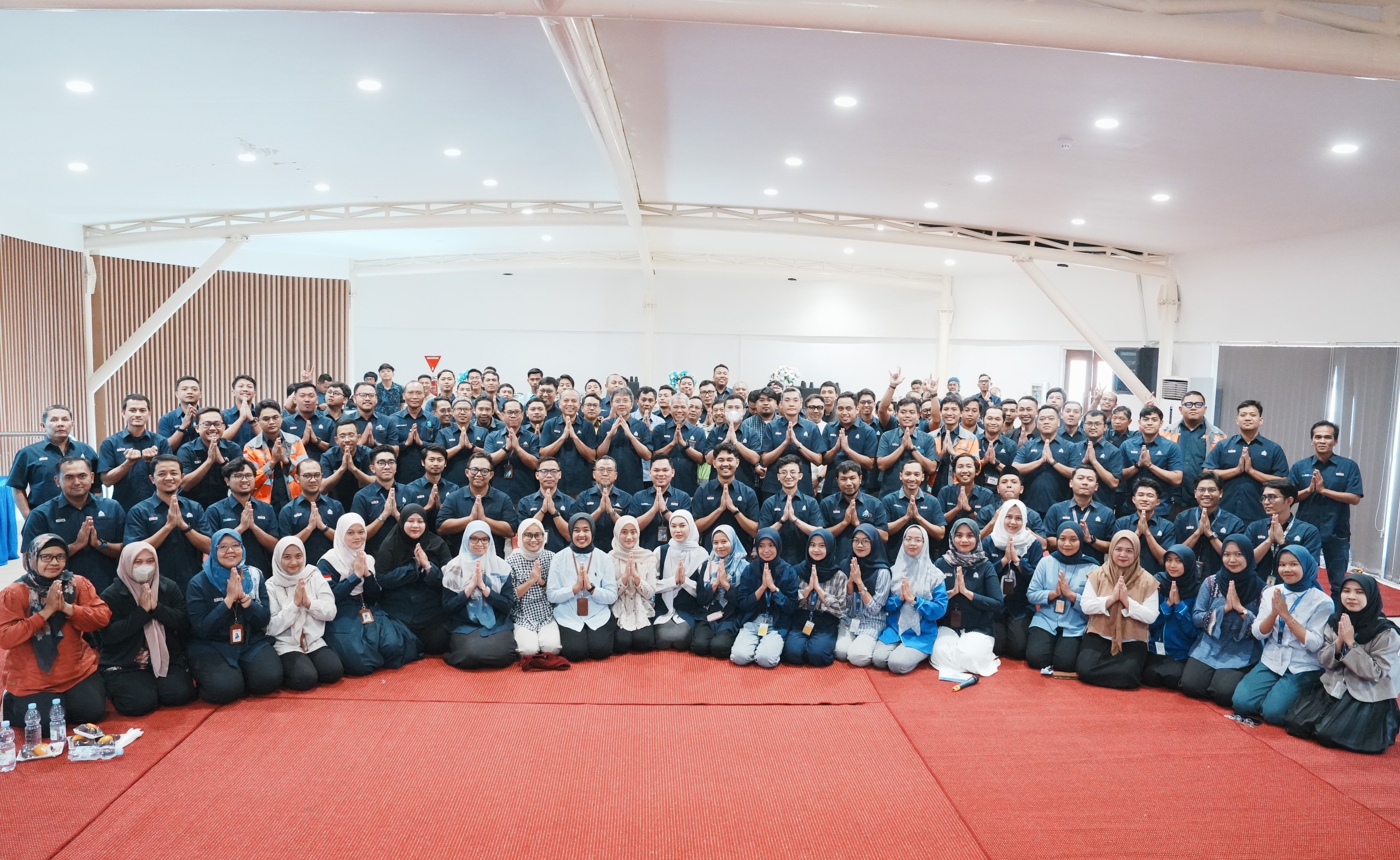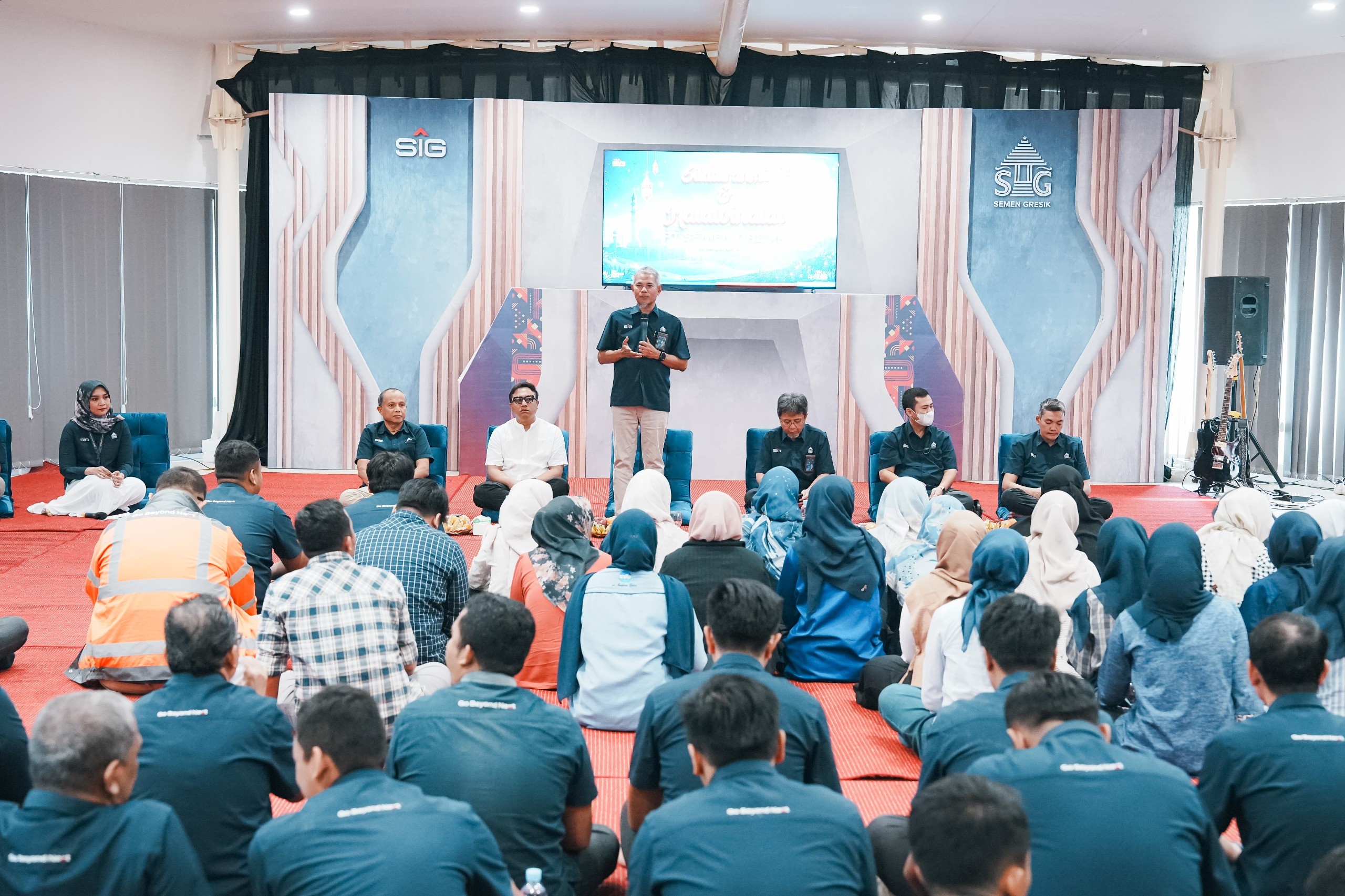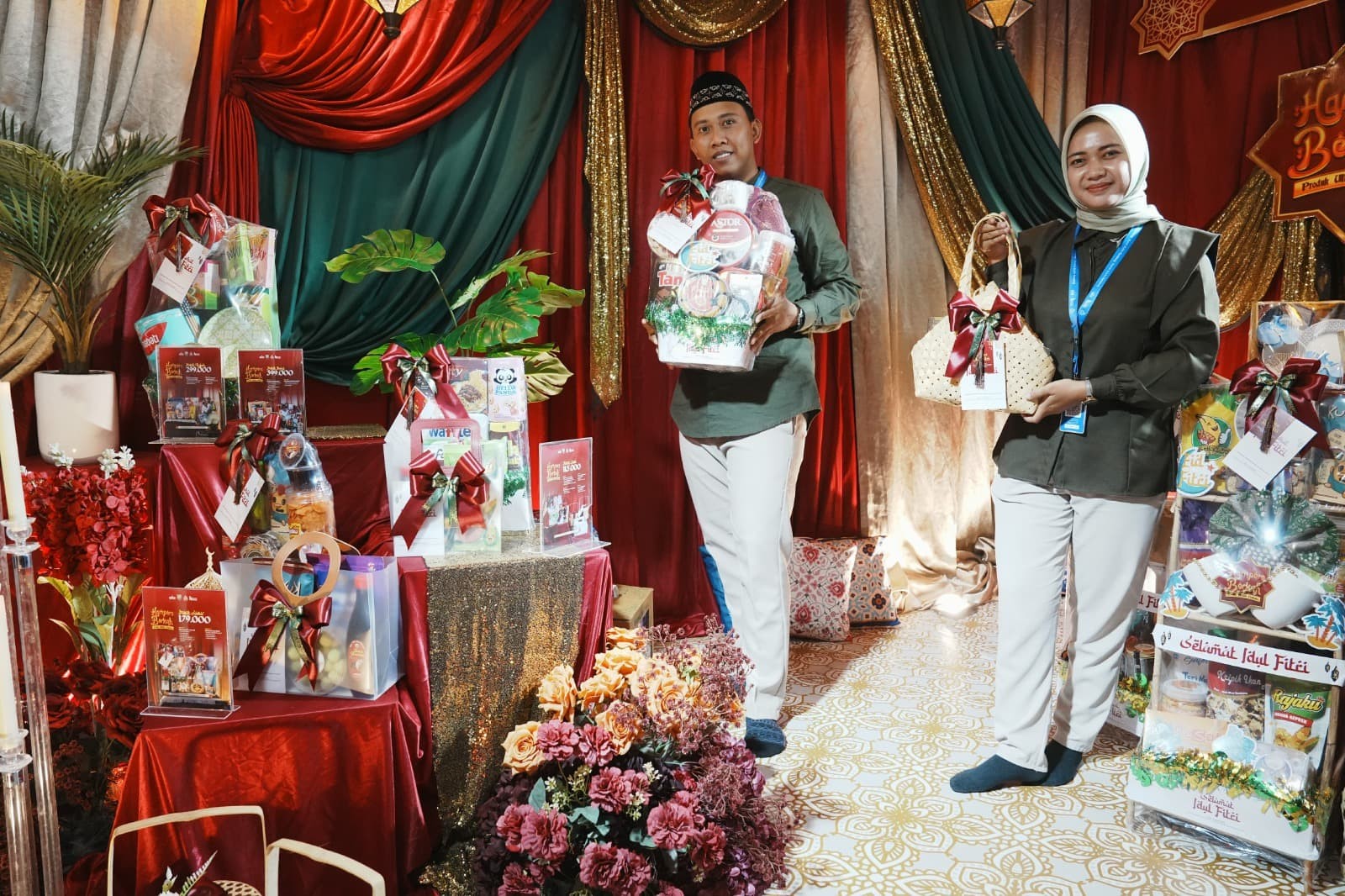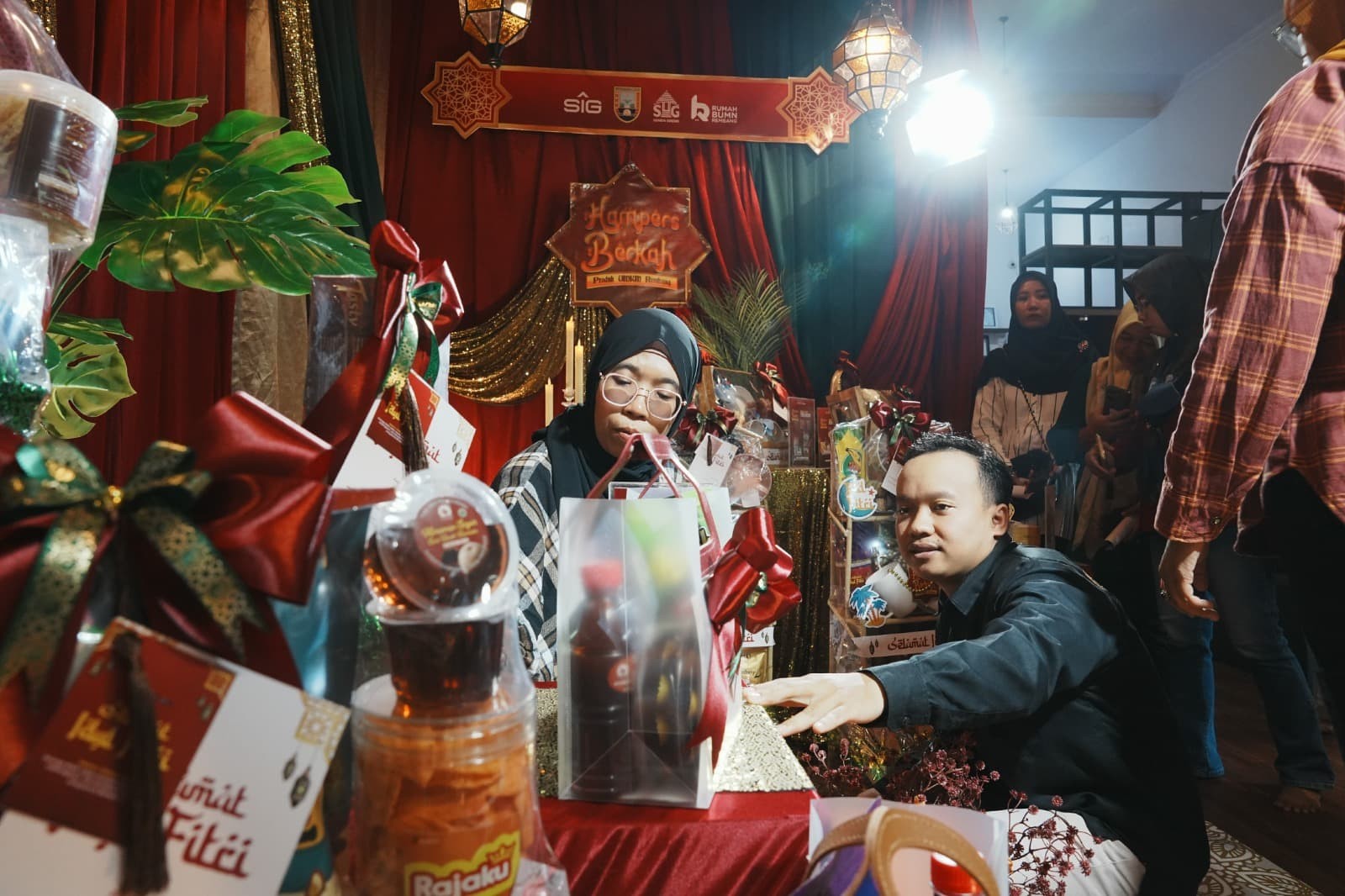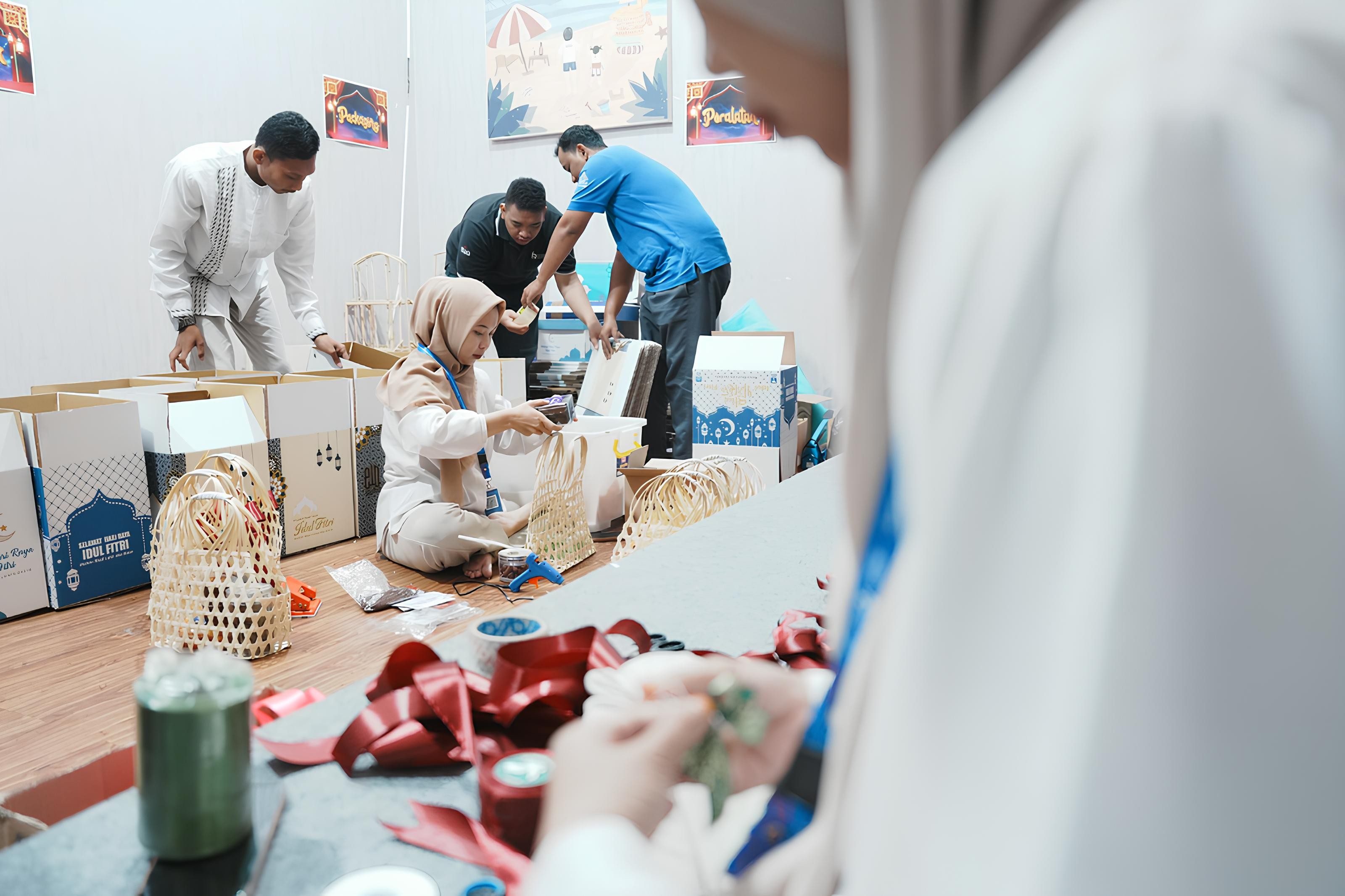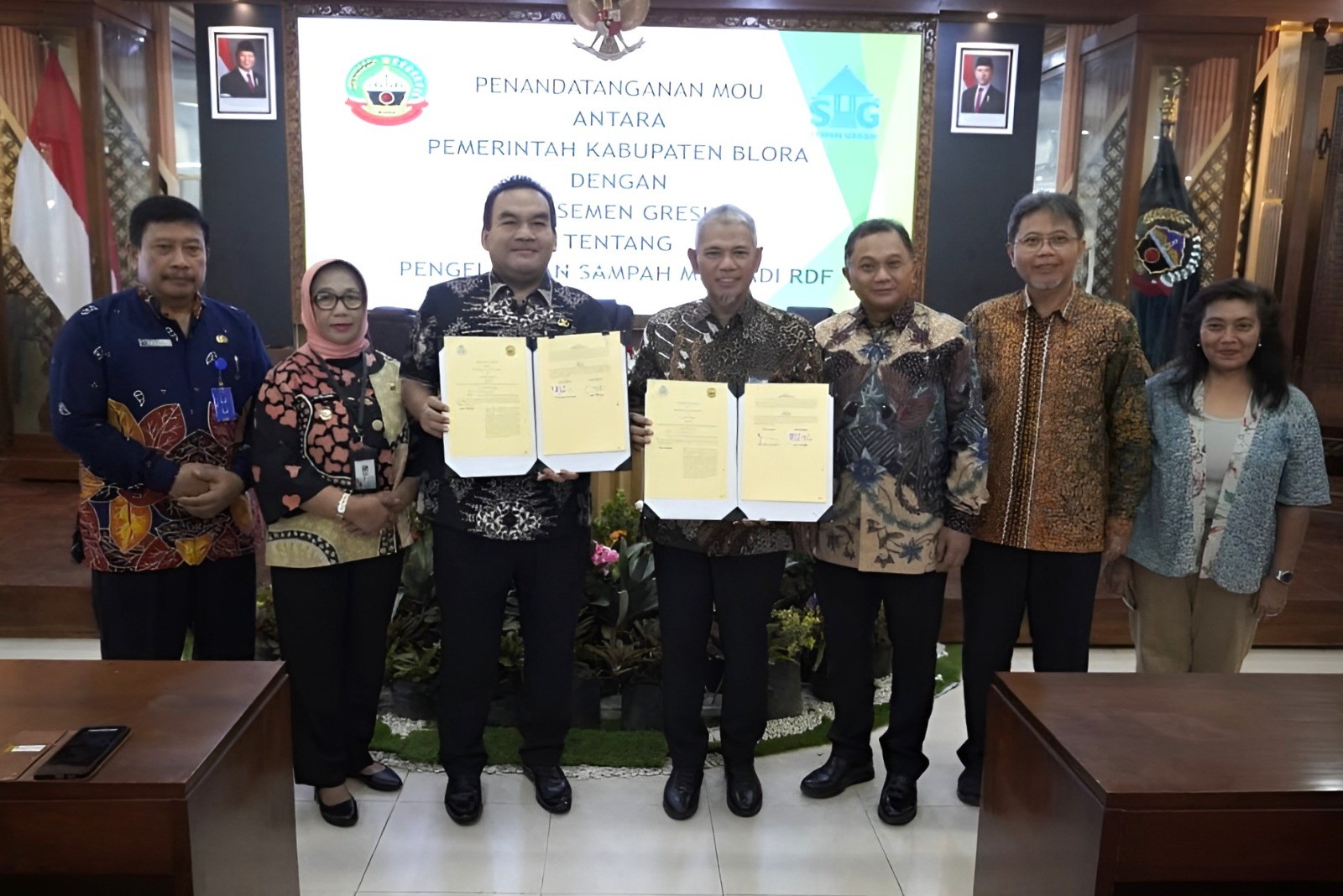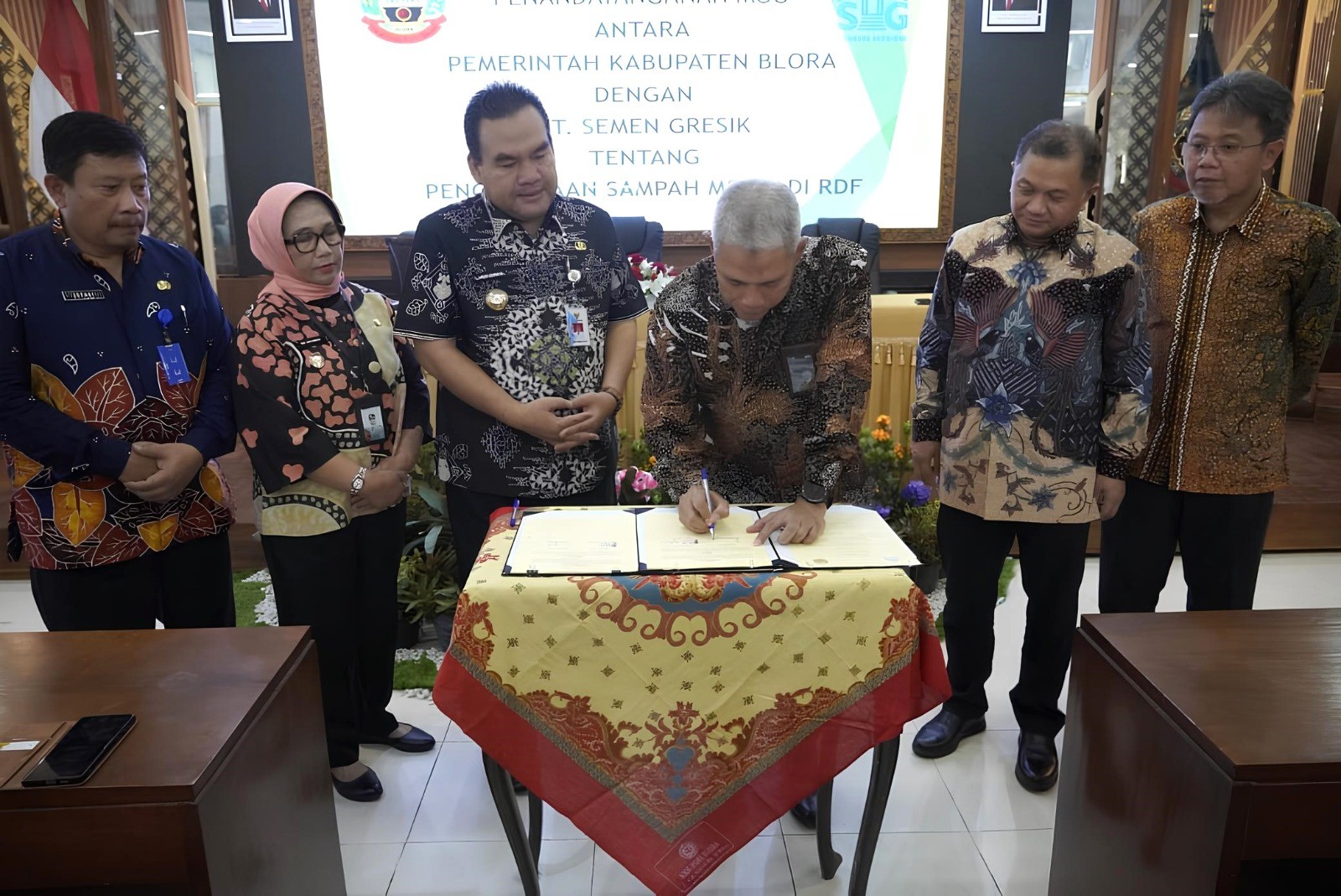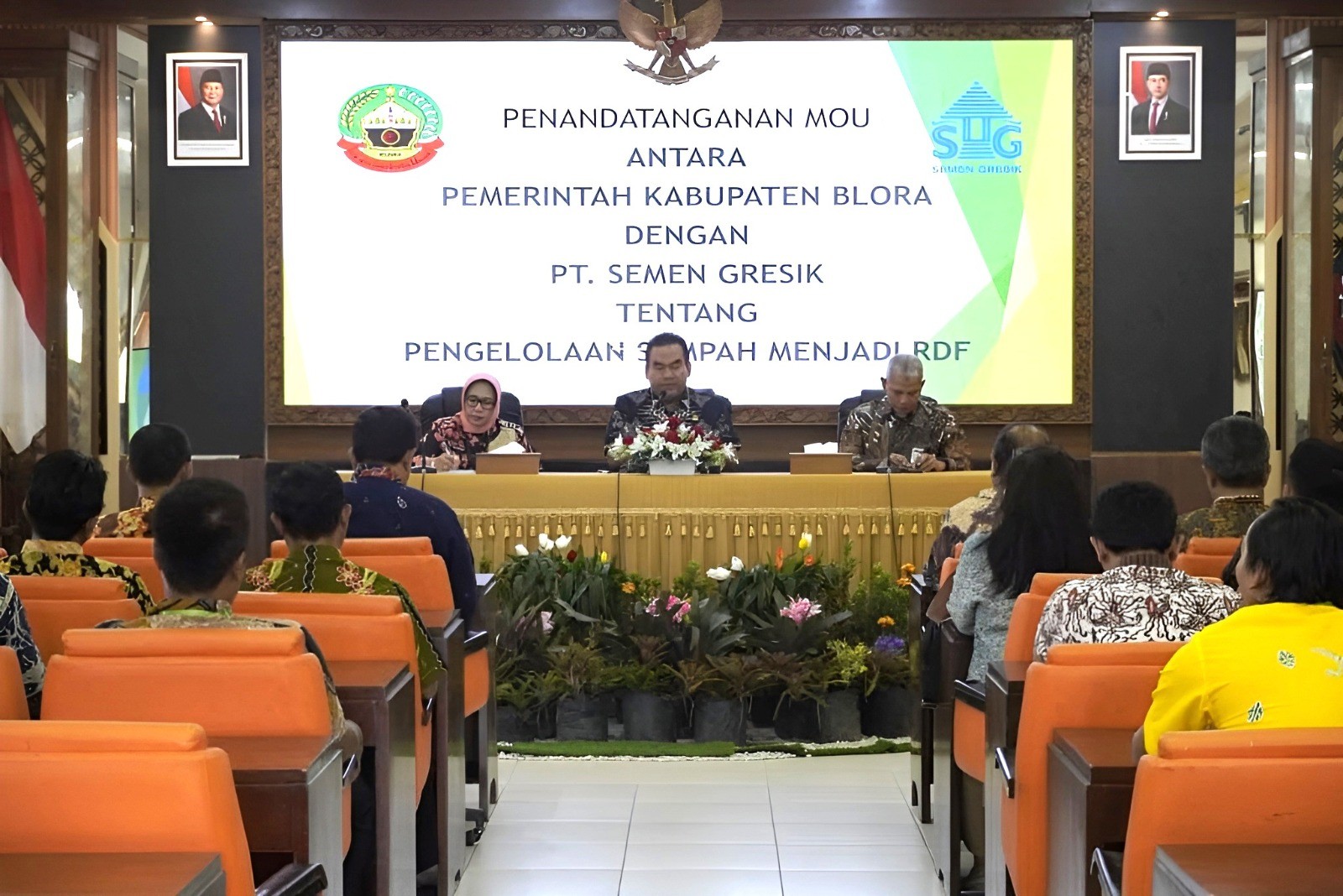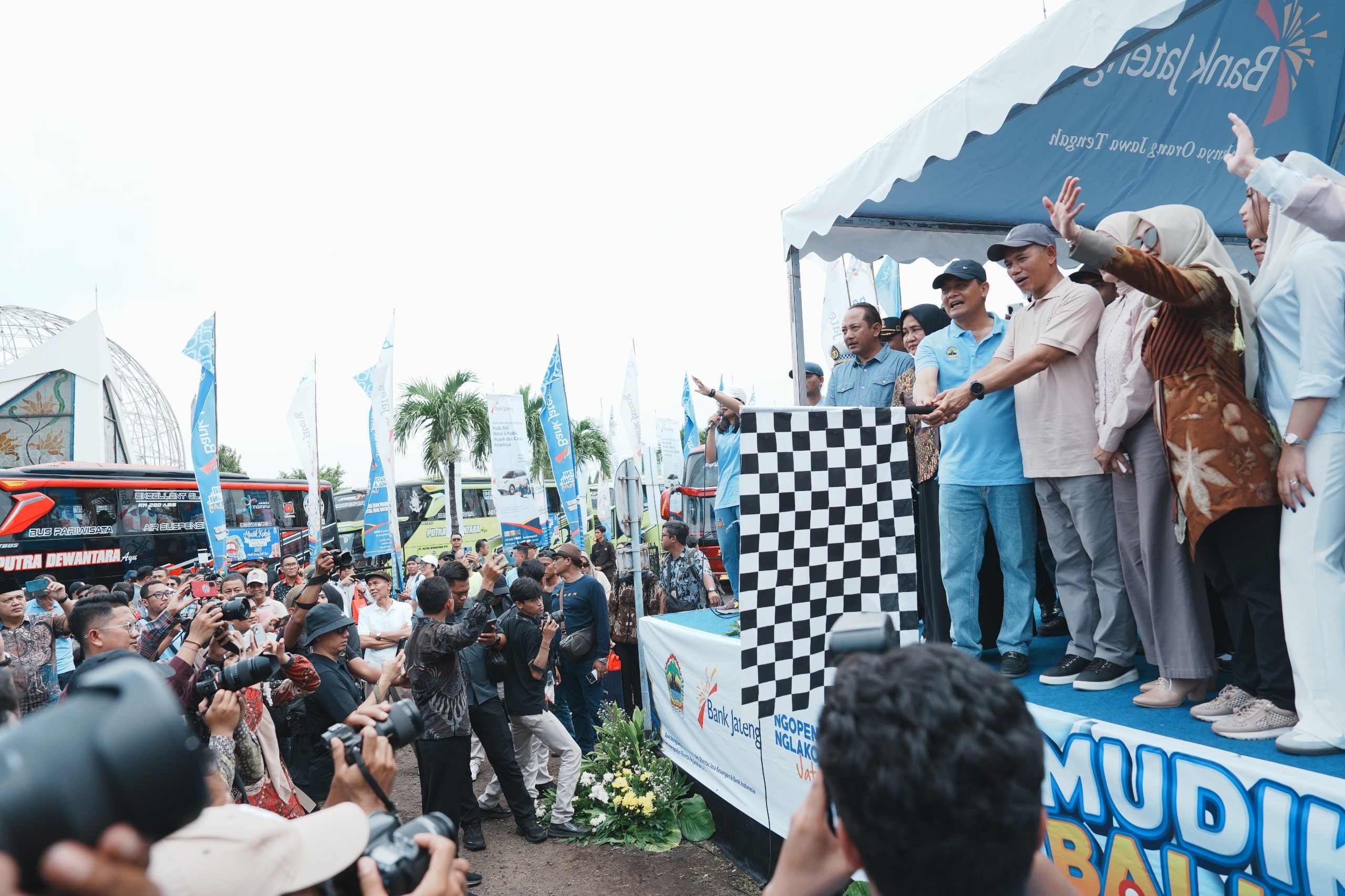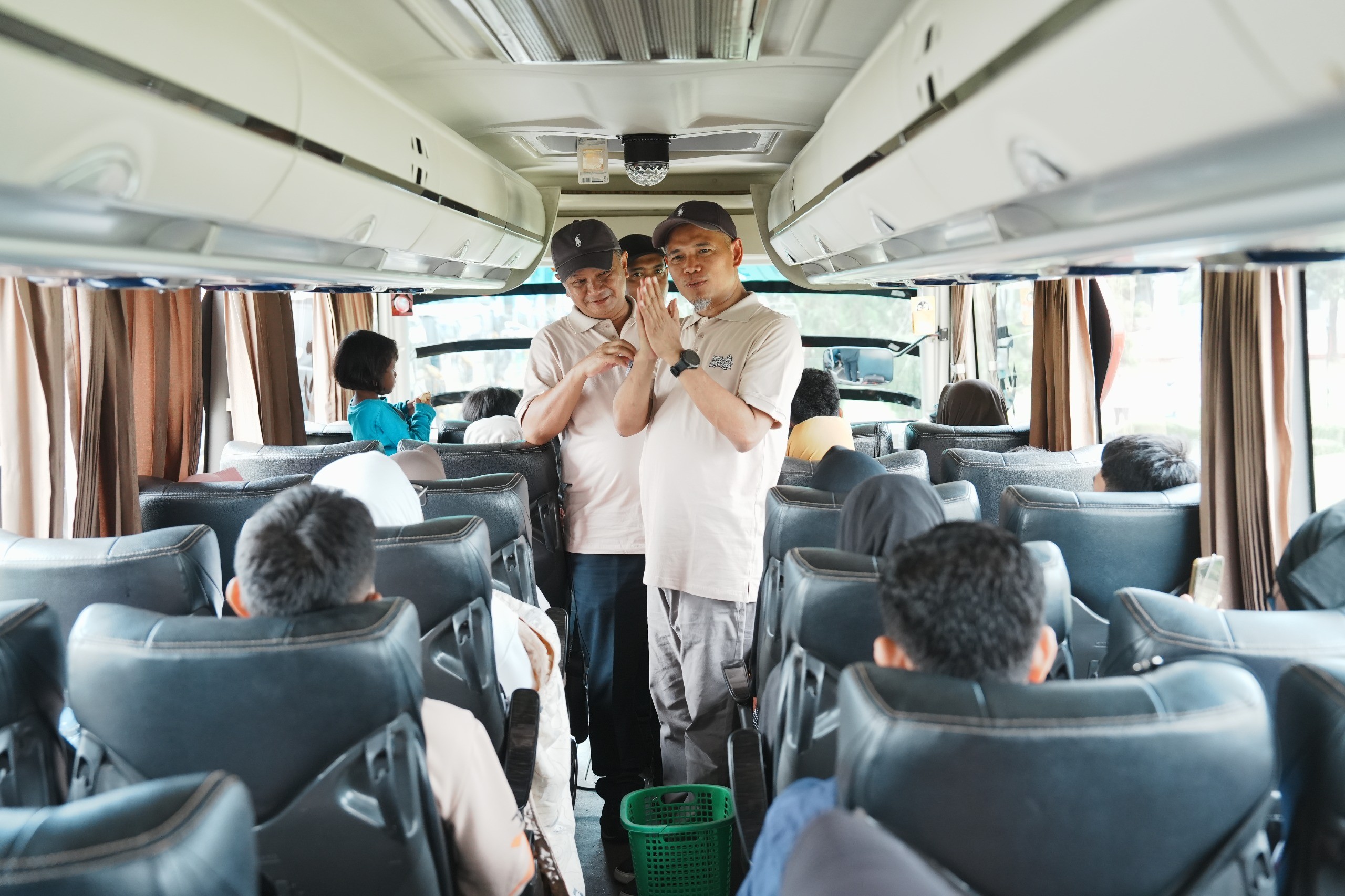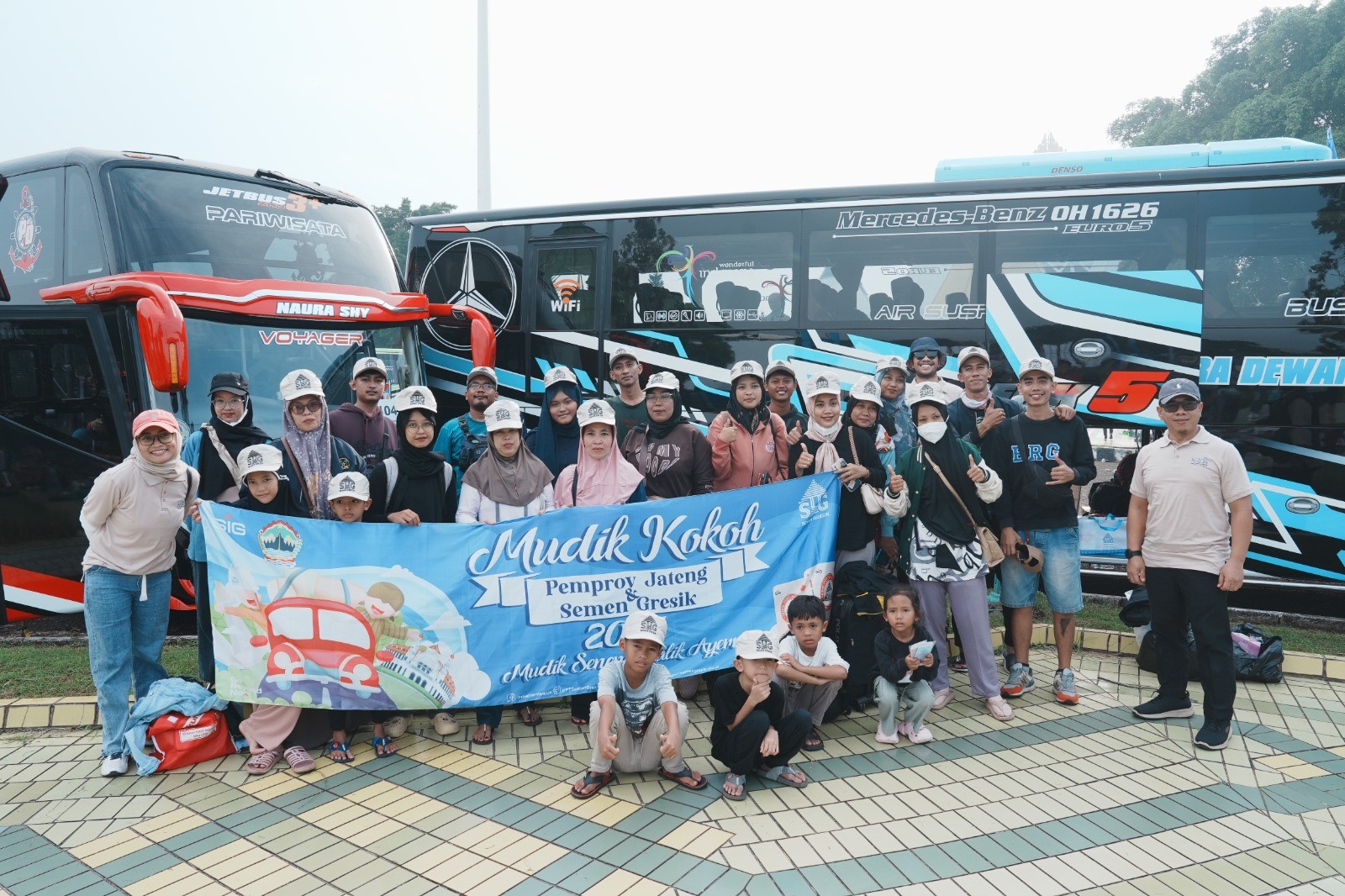Creating Harmony with Farmers, Semen Gresik Changes Barren Land into Fruit Production Centre
Rembang, July 15, 2020 - PT Semen Gresik changes the barren land of 4 hectares into a horticultural plantation. The involvement of local farmers in this program aims to transfer the knowledge so that, in the next few years, Rembang can become a center for seeds and fruits, which are beneficial to the environment, the community, and the region.
The horticultural plantation program, which collaborates with Obor Foundation is located in the Company’s non-licensed mining land. The land is categorized as rainfed land.
During the dry season, the land used to be barren and unproductive. Nowadays, in the site, a reservoir of horticulture is built with a capacity of 15,000 m3, and a variety of productive trees are planted. such as durian, longan, giant sugar-apple, guava, Cavendish banana, Carica papaya, and wood-apple, which is indigenous to Rembang.
The Head of Communication and Community Development Unit of PT Semen Gresik, Dharma Sunyata, said that besides reforestation, this effort was carried out to answer the concerns of many people that the presence of the cement plant potentially damage the environment.
Through the horticulture plantation program, Semen Gresik confirms its commitment to coexist and grow with the community as well as to benefit the environment and the regions.
"The presence of the industry should bring benefits to various sectors of life. It is the commitment of Semen Gresik," said Dharma Sunyata, Wednesday (7/15/2020).
Currently, hundreds of guava and giant sugar-apple trees in the horticultural plantation area have entered the first harvest season. Meanwhile, the harvest season of other harvest productive trees are more varied even though most fruits can only be harvested next year.
The function of the horticulture reservoir located at the highest location becomes the major water source, which flows through the horticultural plantation area. The water reservoir is guaranteed to sufficiently supply the water during both the dry season and the rainy season.
"We shared first crops with hundreds of local farmers. It as an attempt to give encouragement and understanding to them that the rainfed land can also be productive for the development of horticulture with a high economic value," he explained.
The plantation horticulture program has numerous benefits. Besides the fact that the environment is increasingly greener and the local farmers can be more independent, the community in Rembang Regency can also provide seeds and fruits by themselves. The southern area of Rembang could even become a center of several kinds of fruits that is most suitable to be planted in the Regency of Blora based on the study of the Obor Tani Foundation.
"Rembang can be a model for other regions," he explained.
Obor Tani Foundation, which collaborates with Semen Gresik, is not a just any institution. The track record and movement of the institution with the motto “to prosper the villages and the farmers with the model of farming center empowerment” can be noticed in various areas across the province.
One of its famous accomplishment is in the Nglanggeran Village, Patuk Subdistrict, Gunungkidul Regency, Special Region of Yogyakarta. The barren land in that area was successfully converted into a productive land of fruits and also become the first destination for tourists from different regions.
Field coordinator of Obor Tani Foundation, Rohmadin said that the knowledge transfer process and learning to local farmers became one of the priorities in the horticulture plantation program of Semen Gresik. Farmers were taught the process of seeding, planting, fertilizing, spraying, grooming, and harvesting.
"The program could be a means of education among the farmers, as well as school and college students. Agrotourism areas can also be created in Rembang as the farmers cultivate their fruit trees. Previously, farmers only depended on one commodity, then we try to change their mindset with this effort," he concluded.





